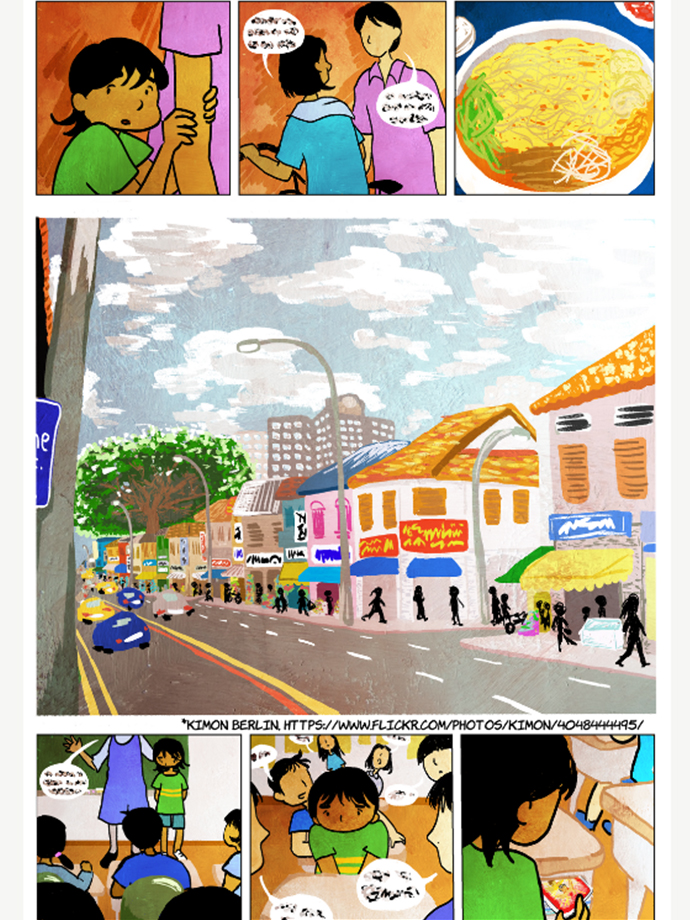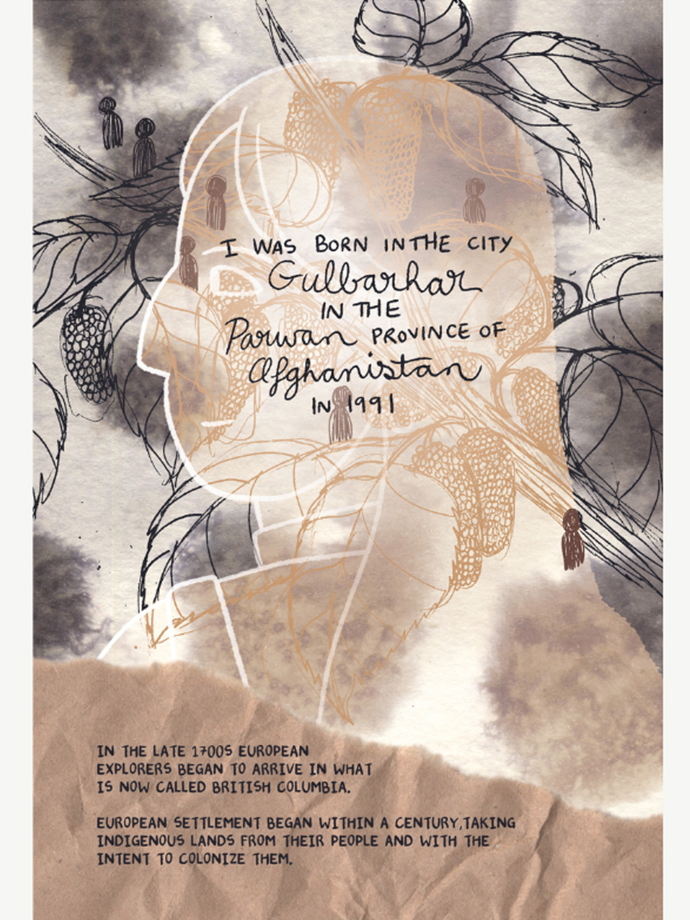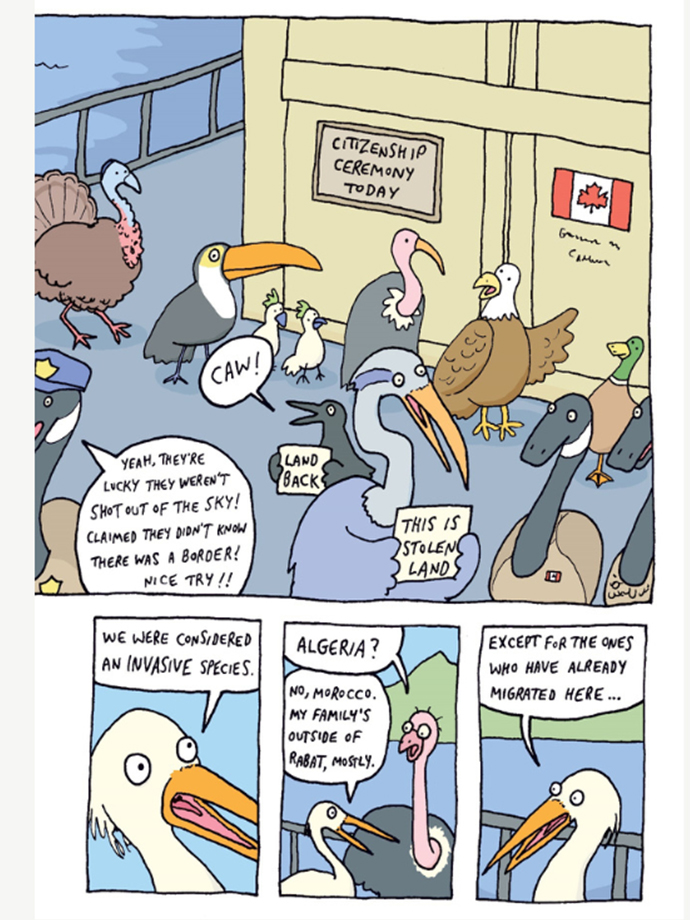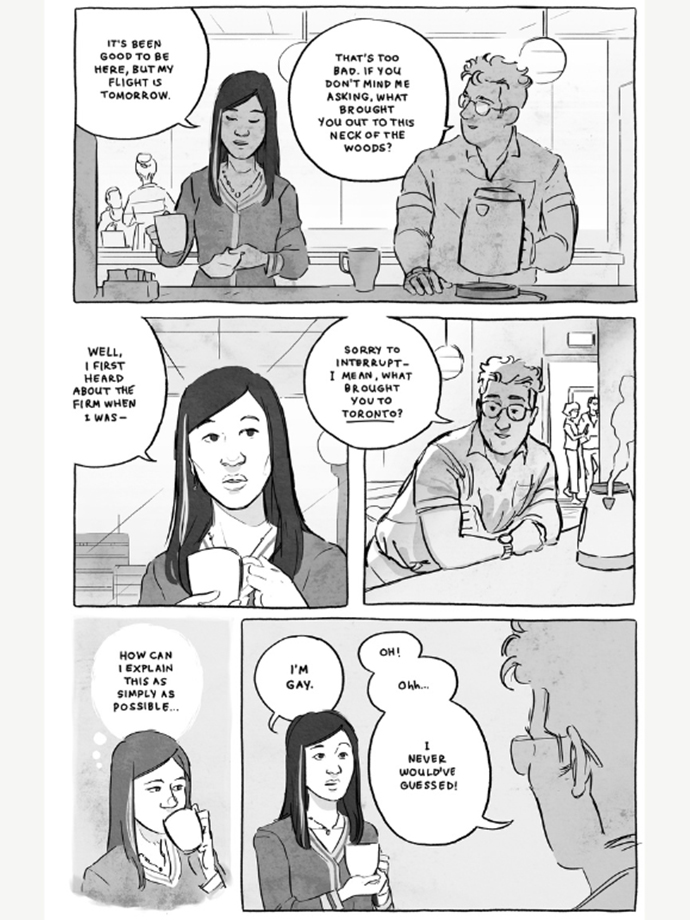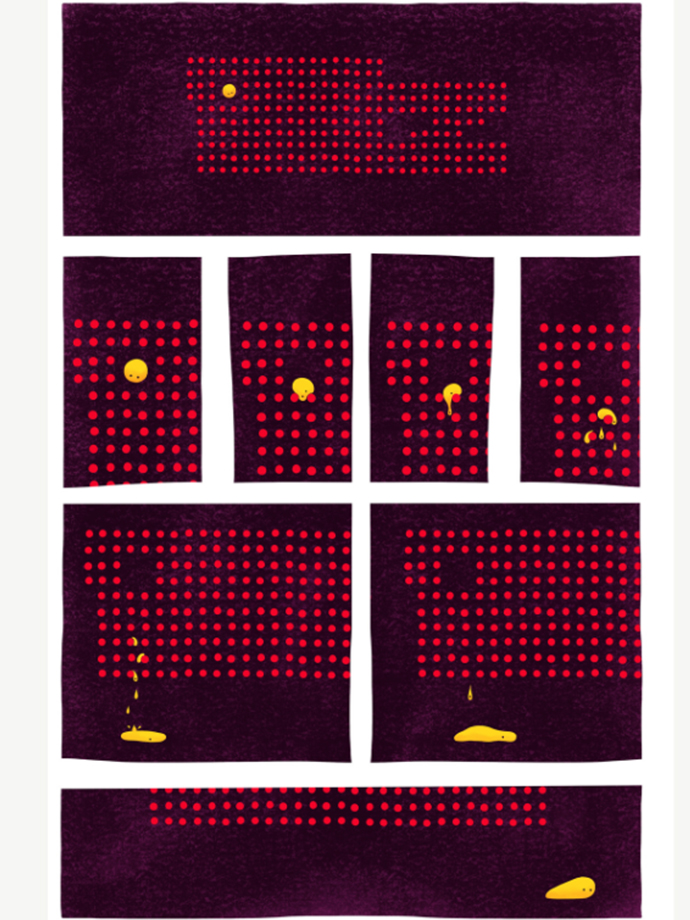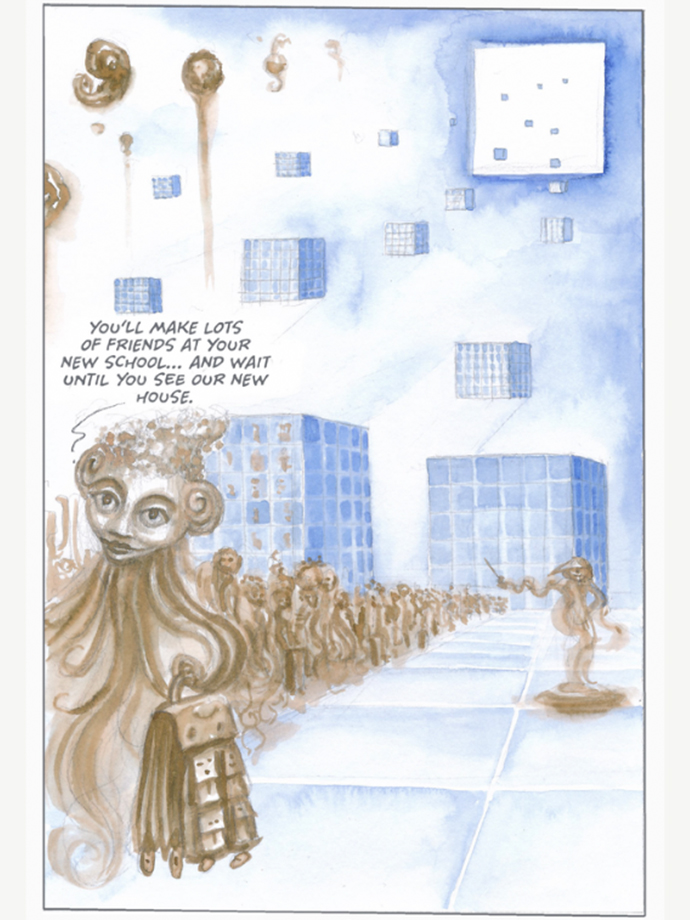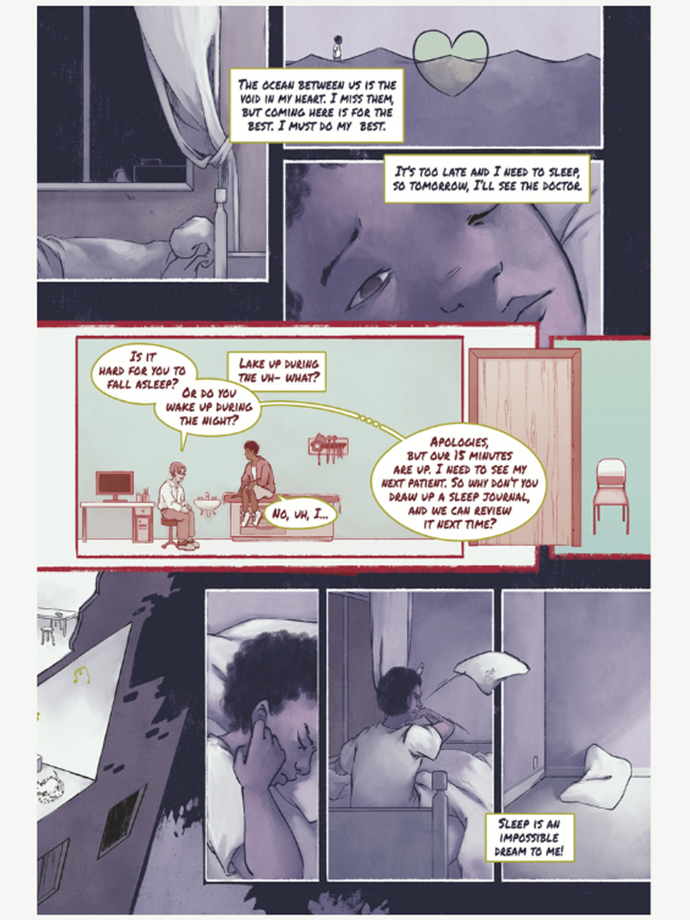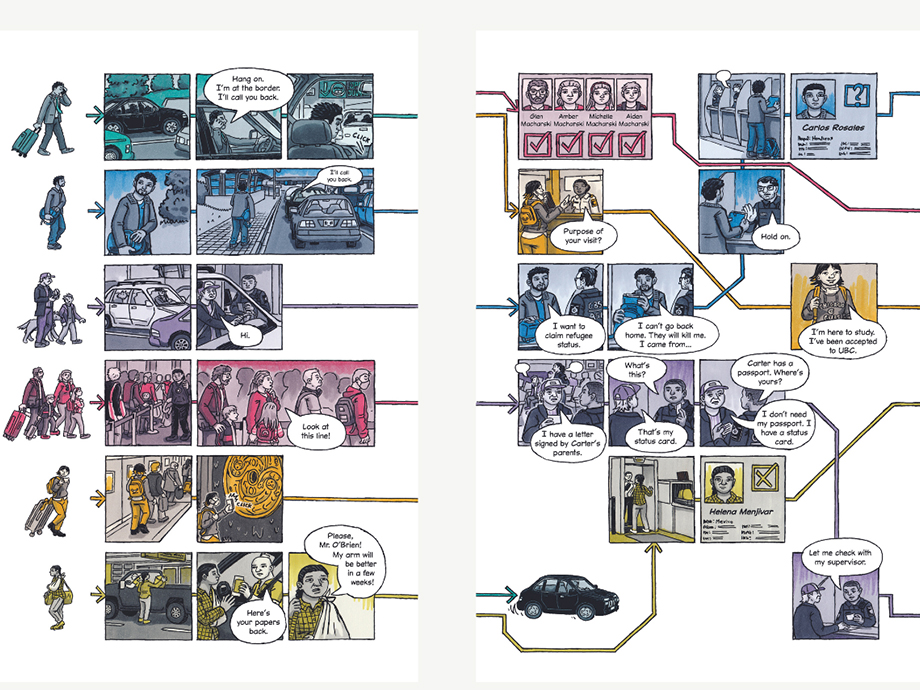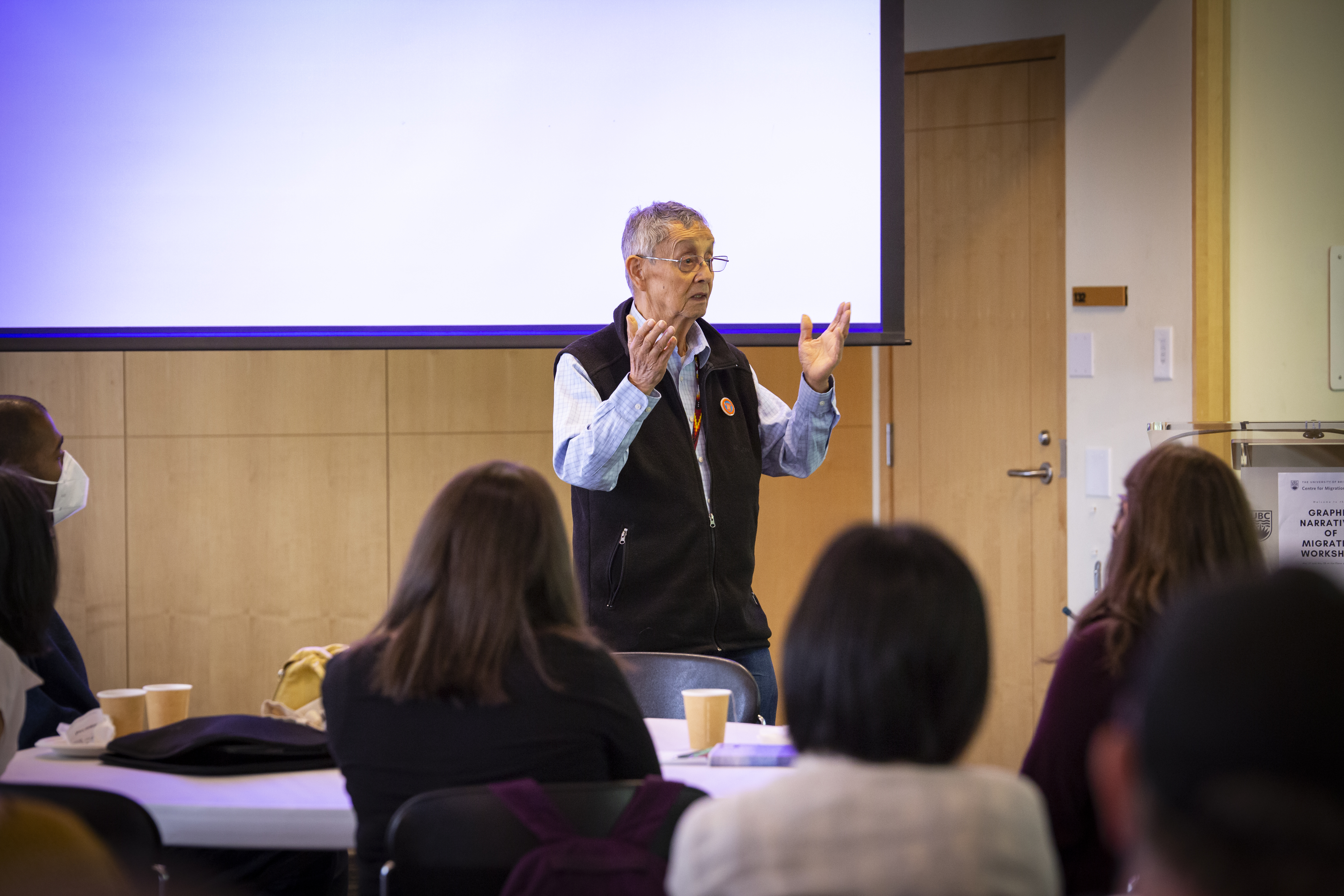
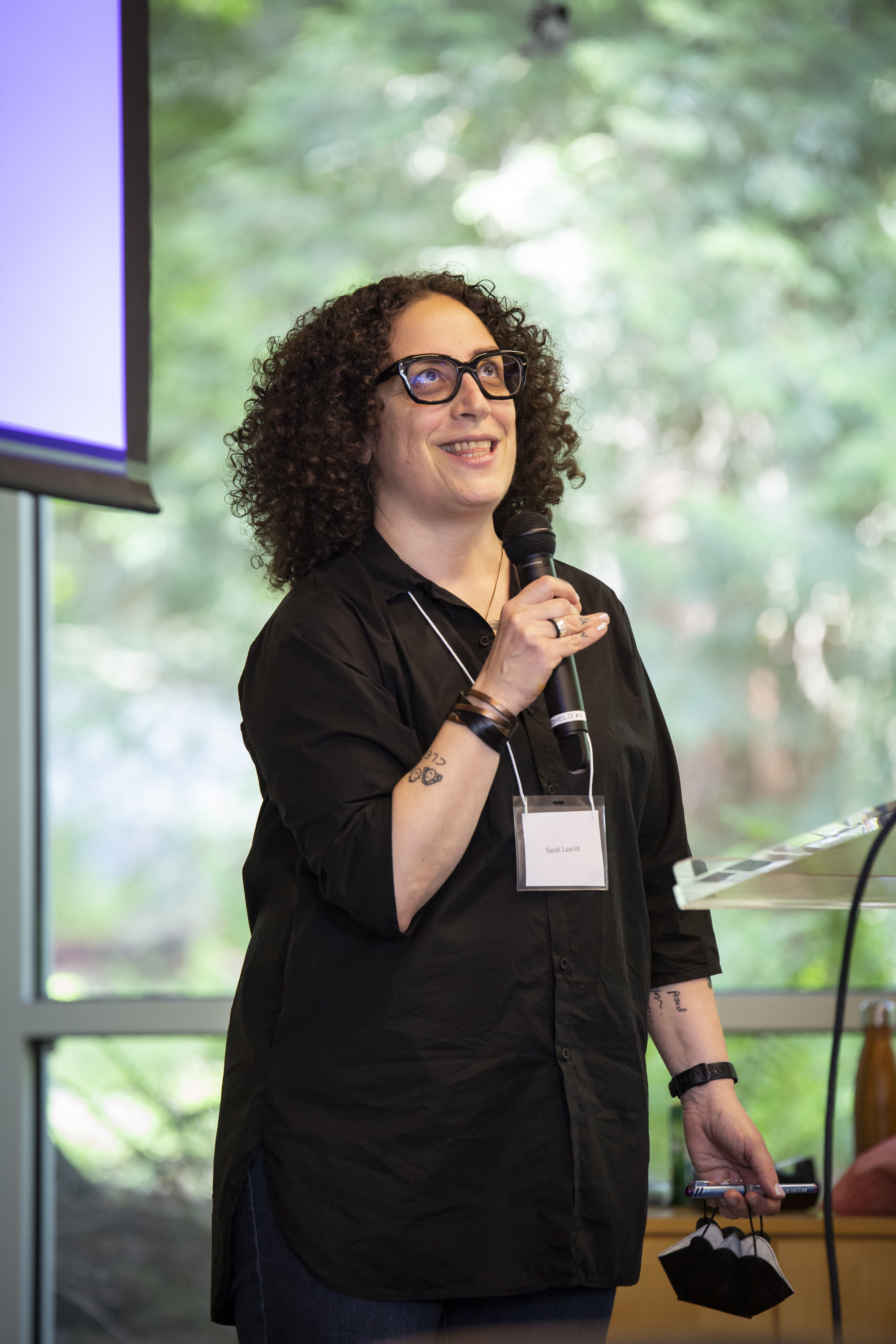
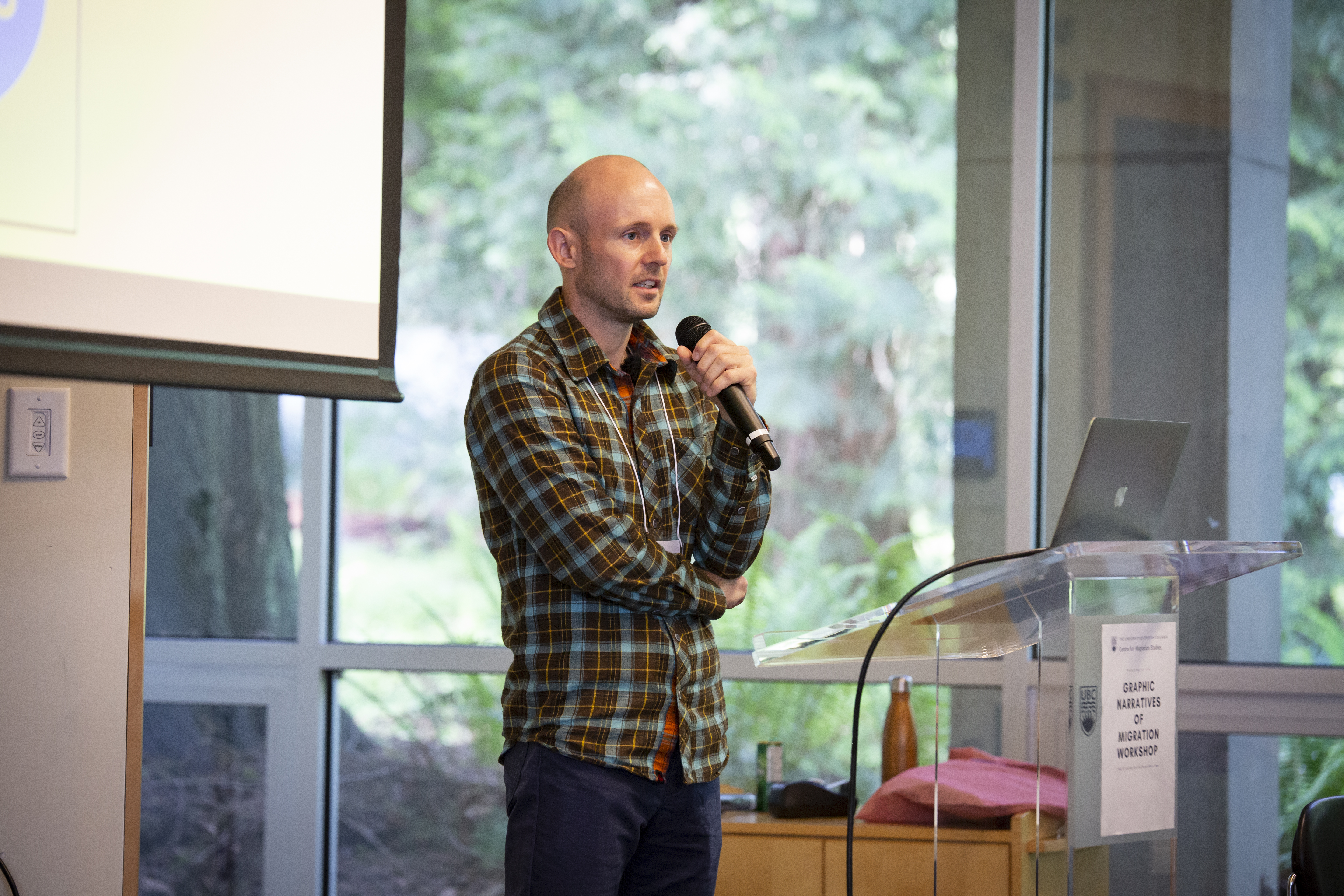
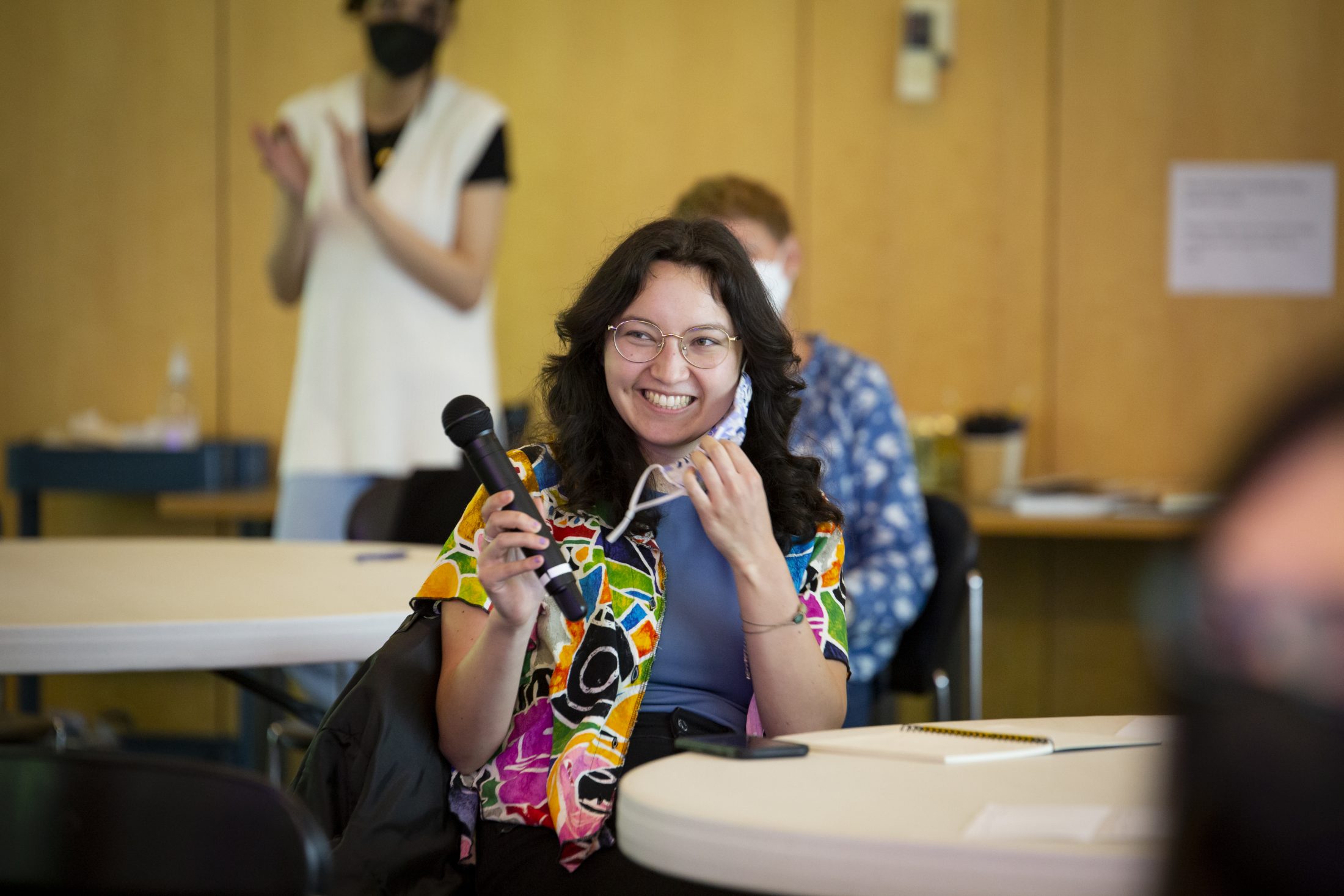
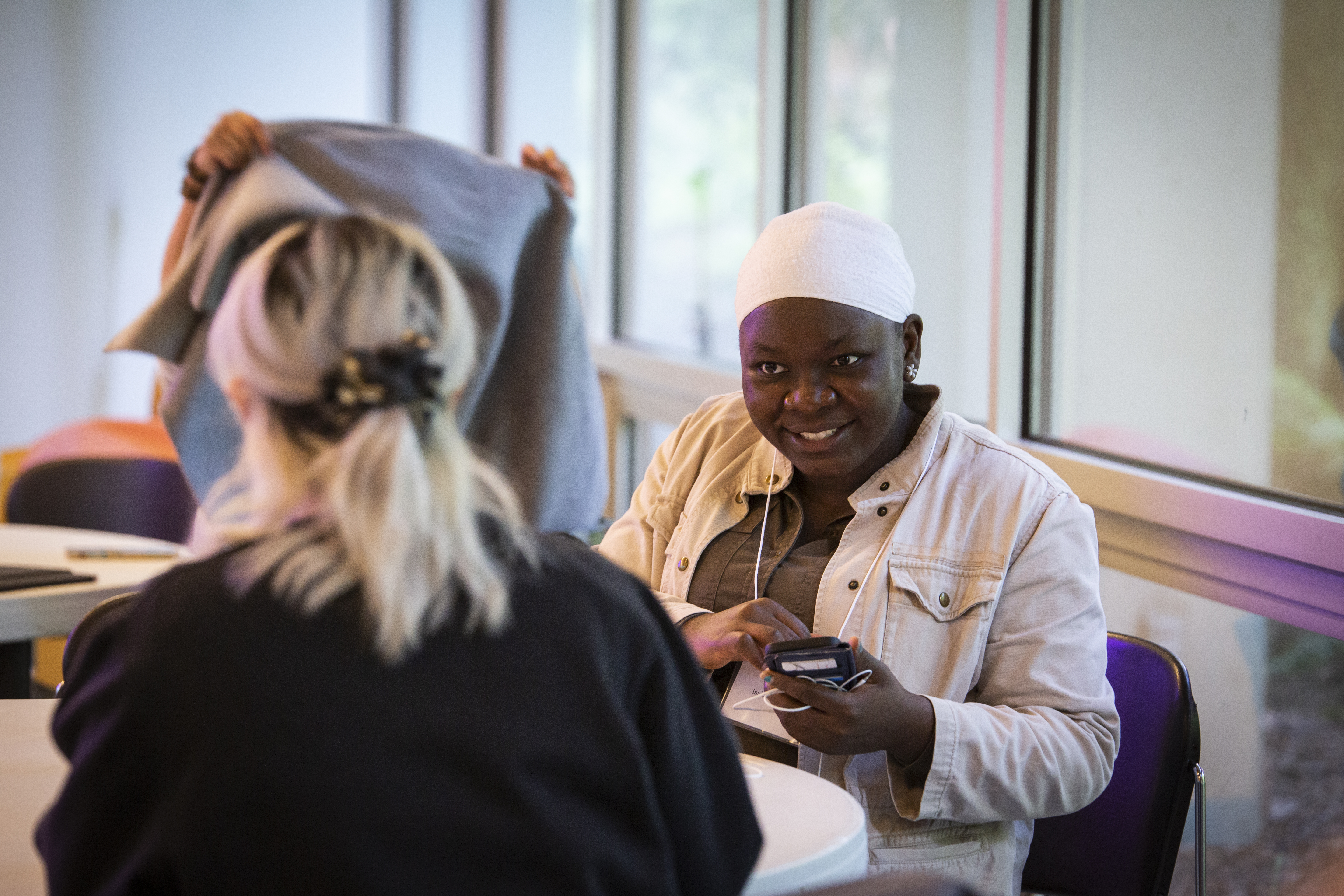
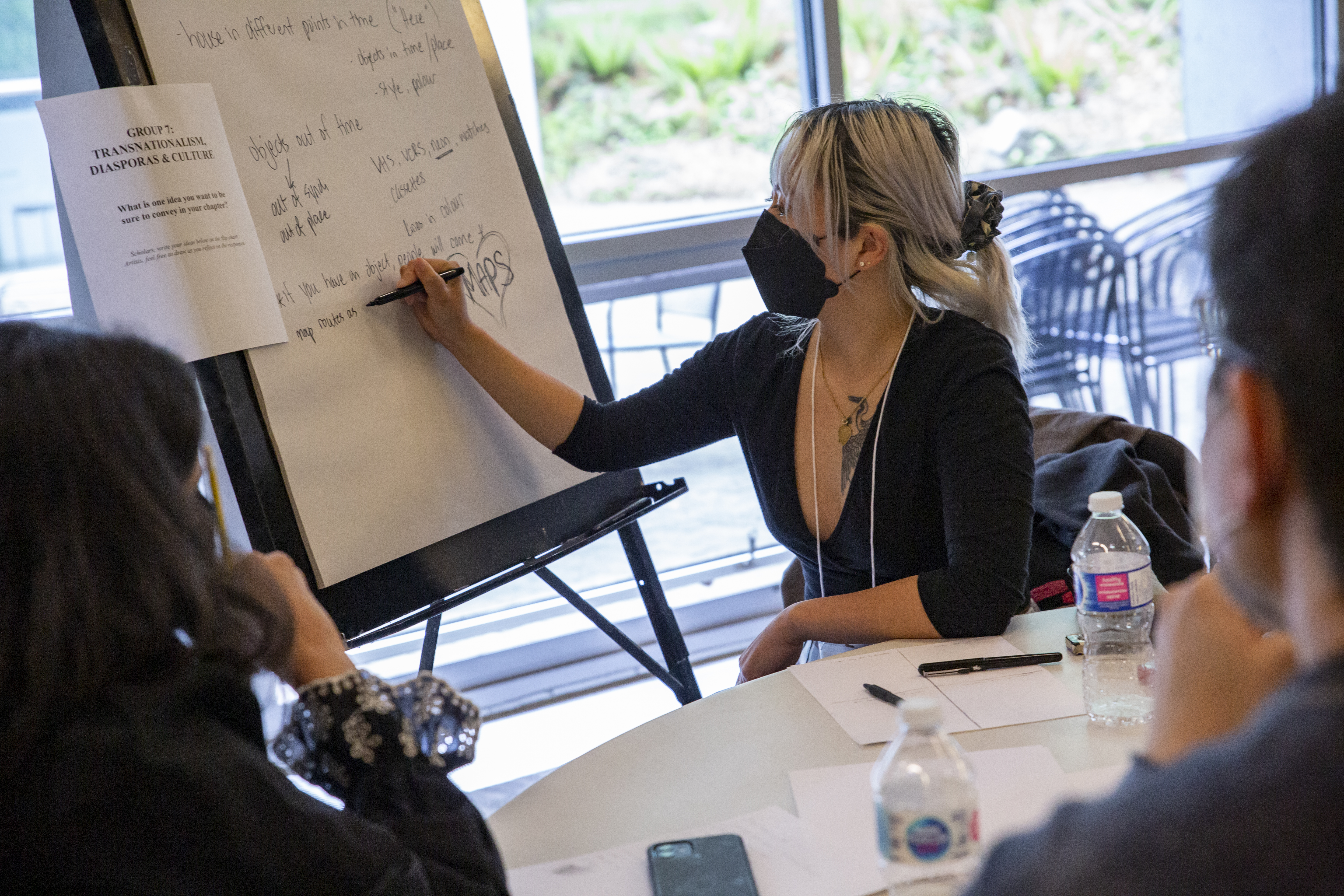
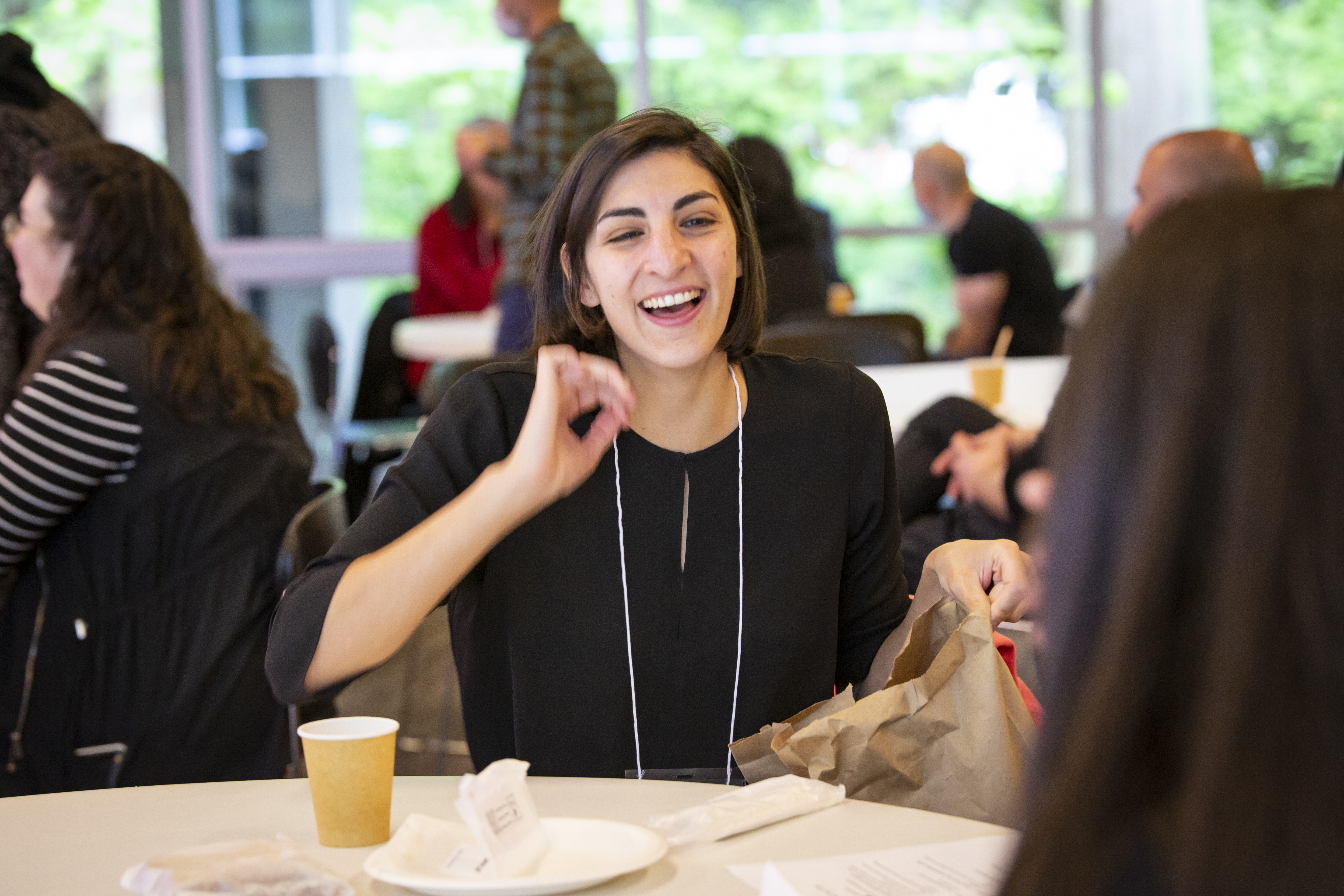

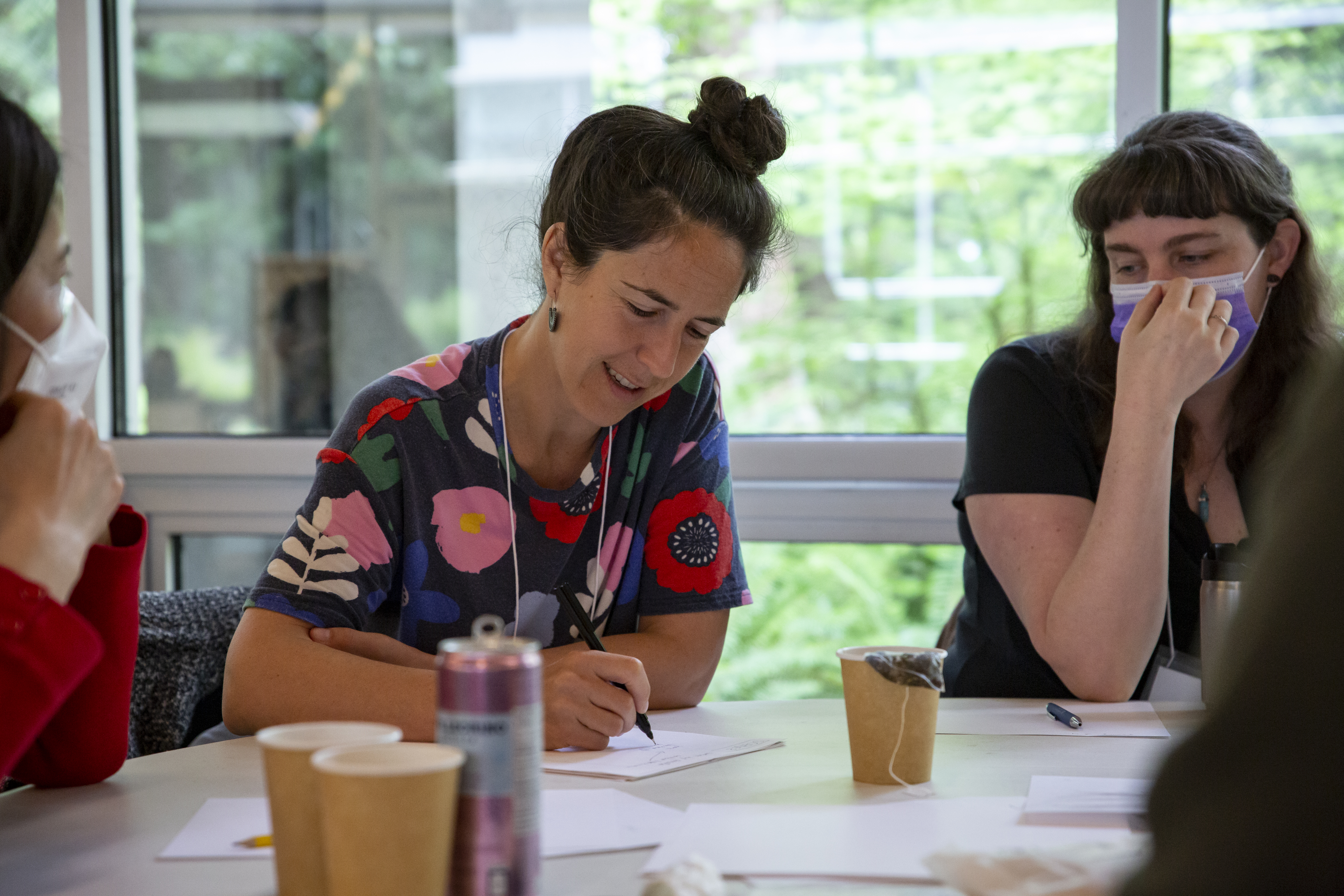
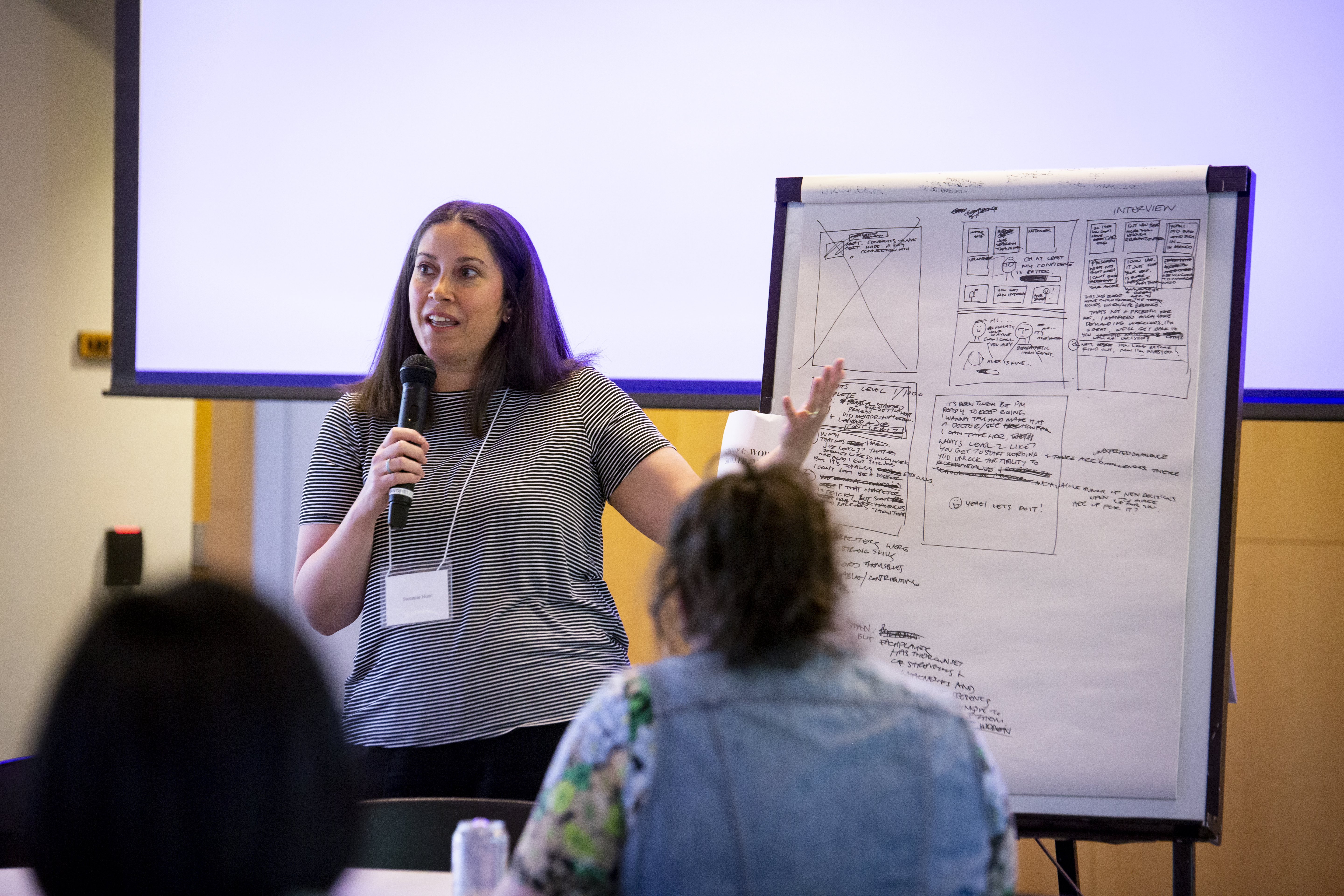

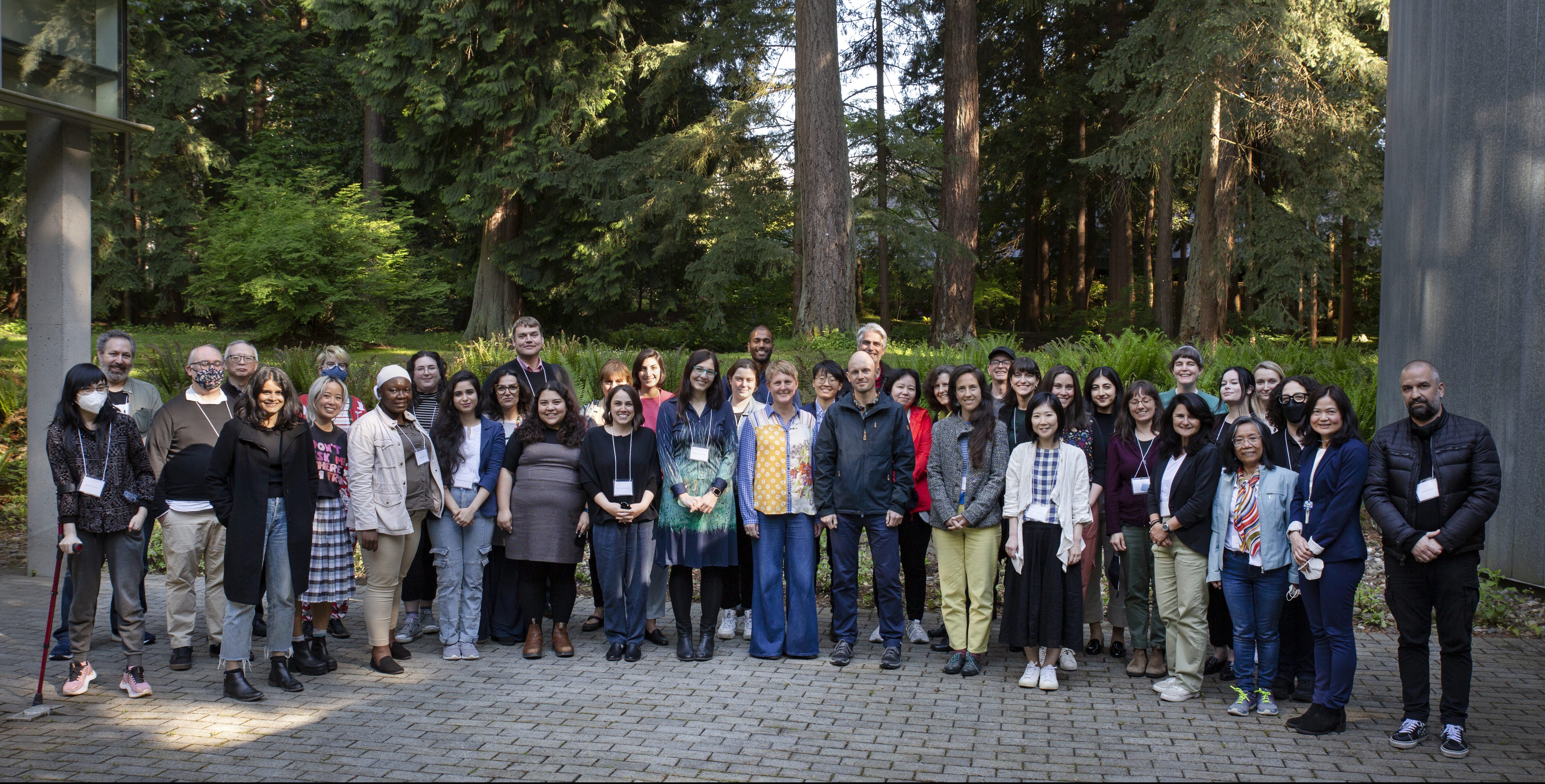
On May 27-28, 2022, the Graphic Narratives of Migration research project brought together an interdisciplinary team of 39 UBC and Concordia migration scholars and Vancouver-based community practitioners with 9 local graphic artists to collaborate in the creation of a collection of migration narratives in comics form. The workshop was held at the UBC Centre for Migration Studies which is situated on the traditional, ancestral, and unceded territory of the Musqueam people.
For most scholars and community practitioners, working with the medium of comics was a new experience. It required faculty, graduate students, and practitioners to move outside their comfort zone and let go of conventional notions of “expertise.” For most graphic artists, collaborating with scholars was an equally novel experience.
After a morning of learning about comics creation from UK-based graphic novelist Kate Evans, University of East Anglia-based comics scholar Frederik Bryn Køhlert, and UBC-based cartoonist and educator Sarah Leavitt, participants spent the remainder of the workshop in 9 working groups. Each group developed a storyline related to mobility and belonging and started the process of comics creation.
The event was a success and we thank all participants and artists for their enthusiastic engagement!
Check out these videos from the event and sample pages from the comics-in-progress to find out more!
- Sample page from “In Search of Bruce Lee,” by Emily Chou (artist) and the Transnationalism, Diasporas, & Culture story group
- Sample page from comic by Kathleen Gros (artist) and the Displacement & Refugees story group
- Sample page from “Migratory Birds,” by Doug Savage (artist) and the Narratives of Belonging & Citizenship story group
- Sample page from comic by Jess Pollard (artist) and the Race, Gender, & Identity story group
- Sample page from “Belonging,” by Alyssa Hirose (artist) and the Community Belonging story group
- Sample page from “Noitargetni,” by Nemo Balkanski (artist) and the Language & Integration story group
- Sample page from “The Waiting Room,” by Scarlet Wings Kaili (artist) and the Migrant Well-being & Health story group
- Sample page from “Greener Grass? The Highly Skilled Immigrant Experience,” by Hannah Myers (artist) and the Work & High-skilled Immigrants story group
- Sample pages from “Crossing Lines,” by Jonathon Dalton (artist) and the Borders & Human Rights story group
More videos from the event:
Kate Evans: Keynote Address: “Comics, Graphic Reportage, and Mass Migration”
Frederik Byrn Køhlert – “How to Think Narrative in Comics”.
All other CMS recordings can be found on our YouTube Channel
Research Team:
Antje Ellermann | Political Science; Director, UBC Centre for Migration Studies
Frederik Byrn Køhlert | Art, Media and American Studies, University of East Anglia
Sarah Leavitt | Creative Writing, UBC
Mireille Paquet | Political Science, Concordia University
Project Assistant: Melika Kajeh
Photography: Gabriele Dumpys Woolever
Videos: Sebastian Hill-Esbrand
We gratefully acknowledge the generous financial support of the Social Sciences and Humanities Research Council and the UBC Centre for Migration Studies.
